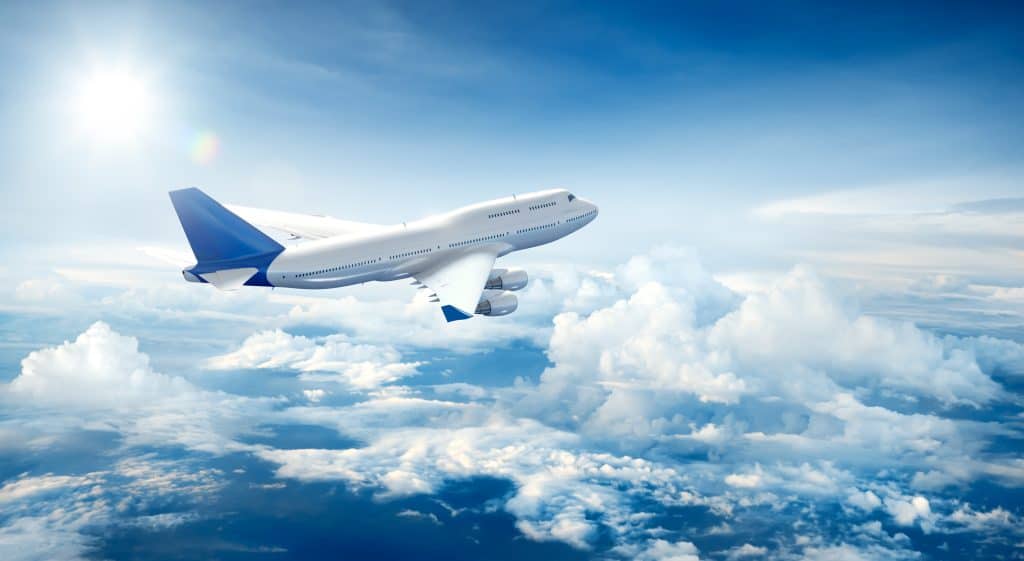Living in an era where technology is reshaping every aspect of our lives, it is no surprise to see that the airline industry is also being shaped by technology. The airline industry is among the top industries that are at the forefront of embracing transformative innovation. The future of airline travel looks promising and is set to be defined by a seamless integration of advanced technological solutions that will outperform the solutions of today and enhance the overall passenger experience.
From hyper-connected flights to sustainable practices, the future looks exciting for the airline industry and connectivity. Let us explore some of the exciting possibilities that lie ahead for airline travel in the future.
Hyper-connected Flights
We are living in a digital age, in which being connected to the internet at all times has become a necessity for most people. In such an age, connectivity on the go is paramount, even while traveling at 30,000 feet in the air. Airline travel is no exception to this, and recent advancements in in-flight WiFi technologies like UnitedWiFi have made it possible to stay connected on the go, even while flying in the air.
As far as the future is concerned, it promises hyper-connectivity for airline travel. Due to the increasing demand to access the Internet while traveling, airlines are now investing heavily in improving their in-flight WiFi services and satellite-based Internet services to provide passengers with high-speed connectivity throughout their journeys. As satellite technology improves, passengers will be able to work, stream, communicate, and stay entertained while they are traveling in the air.
Enhanced Safety and Security
In the future, the safety and security of passengers will also be enhanced. Airlines are now interested in investing money in advanced surveillance technologies to monitor aircraft in real time. This will enhance the safety of passengers by enabling ground control to communicate with pilots and monitor systems instantly.
Additionally, improvements in communication systems will enable airlines to respond swiftly to emergency situations, allowing for immediate coordination with ground control, emergency services, and backup aircraft.
Sustainable Aviation
In the past decade or so, there has been heightened environmental awareness around the world, and the aviation industry is under pressure to reduce its carbon footprint and environmental impact. For this purpose, airlines are pushing hard to achieve sustainable aviation, which looks like the face of the future of the airline industry.
Just as airlines came up with innovative technologies like DeltaWiFi, they are now trying their best to come up with electric and hybrid propulsion systems to create aircraft that can reduce emissions and fuel consumption significantly. These aircraft hold the potential to revolutionize air travel and reshape the landscape of urban and regional air travel.
Furthermore, the search for sustainable aviation fuels is underway, and it won’t be long before we have a sustainable aviation fuel on an industrial scale that reduces emissions by up to 80%.
Enhanced Entertainment
Passengers will soon be able to access VR entertainment options while on board. Airlines are now exploring the option of integrating VR technology on board to enable passengers to enjoy movies in a simulated cinema or experience immersive guided tours of their destination. VR technology will redefine onboard entertainment and make air travel much more enjoyable for passengers.
Smart Airports
The evolution of airline travel extends beyond the aircraft to the very infrastructure that supports it, the airports. In the upcoming future, smart airports will transform the travel experience for passengers. Currently, facial recognition and fingerprint scans are being integrated at airports around the world for various purposes, such as check-in, security clearance, and boarding processes. These make the entire process much more efficient while enhancing security measures.
Additionally, robotic systems and advanced conveyor belts are also being integrated into operations at airports across the globe to enhance the efficiency of baggage handling and minimize the chances of misplaced luggage.
Disclaimer: The views and opinions expressed in this article are those of the authors and do not reflect those of Geek Vibes Nation. This article is for educational purposes only.

Andrea Bell is a blogger by choice. She loves to discover the world around her. She likes to share her discoveries, experiences and express herself through her blogs. You can find her on Twitter:@IM_AndreaBell






